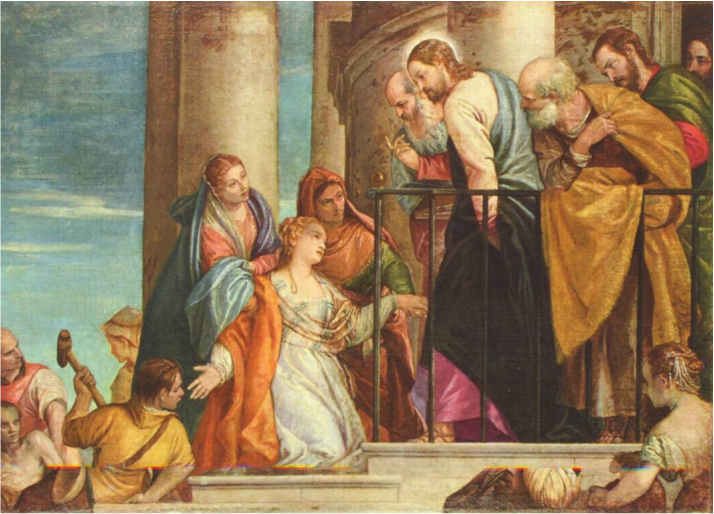 He is no unkind physician who opens the swelling, who cuts, who cauterizes the corrupted part. He gives pain, it is true, but he only gives pain, that he might bring the patient on to health. He gives pain, but if he did not, he would do no good. (St. Augustine: Sermon xxvii) Last week we contemplated the temptations that Jesus withstood on our behalf in order to draw us deeper into His love for God our Heavenly Father. And I pray that we came away with a real sense of His desire to serve God alone and to fulfill His will for us. This week we shall come to see and grasp the nature of sin and our powerlessness over it. I pray that we shall come to learn that all sin whether subtle or palpable threatens to control us. I pray too that we shall find deliverance from it through persistent and humble submission to the Lord’s judgment of our condition and the faith that He makes to ensure its cure. This morning we read in the Gospel that Our Lord Jesus Christ comes to the coasts of Tyre and Sidon.(St. Matthew 15. 21) He comes to the borders of the pagan Gentile world –a place which had only heard of Him and the promises made to God’s chosen Jewish people. Sin brings all of us to the borders of paganism, alienation from God, potential despair, and threatening unbelief. And yet this spiritual place is never far from Jesus. Whoever and wherever a person might be, Jesus comes to those who struggle to confront and overcome sin. And in order to liberate them from the chains of evil, He will elicit faith, clarify desire, and heighten the hope of the person who then opens to His healing. And so in this morning’s Gospel we read that a heathen woman seeks out Jesus and His disciples. As we said, His reputation had spread to the lands outside of Israel. The Jews had brought their sick to Him, those which were possessed with devils, and those which were lunatics, and He healed them. (St. Matthew 4. 24) She had heard of this news, and so she would see Jesus. (St. John 12. 21) She does not waste any time, but cuts to the quick, for she cried unto him, saying, Have mercy on me, O Lord, thou son of David; my daughter is grievously vexed with a devil. (St. Matthew 15. 22) She comes not for herself, but for another. She bears the burden and pain of her daughter’s illness within her heart. Her daughter’s misery is her misery. She will learn that Jesus’ misery is our misery. She implores His mercy, and finds something that surprises us. –That He answered her not a word. (Ibid, 23) Jesus is silent. As St. John Chrysostym has said, The Word has no word; the fountain is sealed; the physician withholds His remedies. (Homily LII: Vol X, NPNF:I) The Syro-Phoenician woman implores Jesus’ healing power for her daughter. But this is not enough. Jesus will elicit more from her in order to teach us about true faith that desires His Grace –the suppliant posture of the earnest seeker who would secure His benefit. The Apostles cannot see what Jesus is up to. They have been with Him for some time, have witnessed what He can do, but prefer to keep Him for themselves, so that seeing, they see, and do not perceive. (St. Mark 4. 12) Evidently, like many Christians, they settle for the Jesus whose presence comforts them and is best enjoyed when left undisturbed! Send her away, for she crieth after us. (St. Matthew 15, 23) As far as they are concerned He might heal her daughter or not; their chief end is to be rid of this pestiferous nuisance. Theirs is that heartless granting of a request, whereof most of us are conscious; when it is granted out of no love to the suppliant, but to leave undisturbed his selfish ease from whom at length it is exhorted. (Trench: Gospel) And yet, Jesus will not be hurried by this woman. He will engage her, for He knows that in her heart there is a faith that needs to be revealed and expressed for the benefit of all. Comments are closed.
|
St. Michael and All Angels Sermons:
|


 RSS Feed
RSS Feed